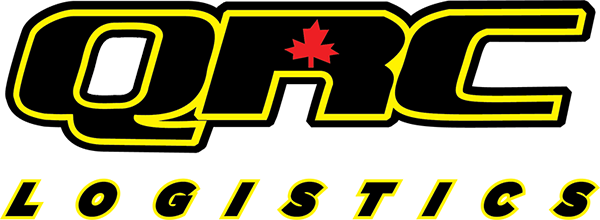Wondering what is freight management? Freight management is the process of optimizing a freight transportation network to control costs, reduce risk and improve efficiency. It involves planning, organizing, and monitoring the movement of goods within a supply chain in order to ensure that they arrive at their destination on time and in the most cost-effective manner possible.
It encompasses all aspects of logistics, including inventory management, packaging and transportation, customs requirements, billing, warehousing and distribution. It can involve multiple carriers or shipment modes including ocean, air, rail and truck. The goal of freight management is to ensure that goods are delivered as quickly as possible while still meeting any customer deadlines or other requirements.

What Is A Freight Management System?
A freight management system (FMS) is a set of software tools used to automate the entire freight process. It is typically used by businesses that need to move goods from point A to point B and includes everything from tracking shipments to invoicing customers. FMS can also provide insights into customer preferences, fleet routing optimization, and more.
Effective freight management requires strong communication between all involved parties. It requires close attention to detail, an understanding of regulations and best practices, and the ability to anticipate demand or supply chain changes quickly so that adjustments can be made in a timely manner. Depending on the organization’s size, freight management can be handled by an individual or a dedicated team within the company.
Route, Load, And Transport Optimization
Route, load, and transport optimization are all integral components of freight management. Route optimization is the process of finding the most cost-effective path for transportation, taking into account factors like fuel costs, road tolls, and time limits. Load optimization involves analyzing the needs of customers in order to better pack shipments so that they fit more items per truck. And transport optimization is a process of finding the most efficient way to move goods, which may involve using multiple modes of transportation and taking into account variables such as cost, speed, and customer service.
Freight Management In The Digital Age
The digital revolution has drastically changed freight management. With real-time tracking now available, businesses can monitor and manage their shipments more closely than ever before. Automated invoices and billing systems allow for faster payments and fewer errors.
And powerful optimization tools help businesses make better decisions about how, when, and where goods are shipped. In short, digital freight management is helping companies reduce costs, improve customer service, and drive greater efficiency throughout the entire supply chain.
Digital freight management also opens up the possibility of using technology like predictive analytics and artificial intelligence to gain insights into customer demand, forecast shipping delays, and identify opportunities for cost-savings. As businesses continue to embrace digital transformation, this powerful combination of human expertise and machine learning is poised to revolutionize freight management in the coming years.
The Benefits Of Freight Management
Freight management can have a positive impact on both supply chain performance and customer service. By optimizing routes, load plans, and transportation modes, businesses are able to reduce costs while still meeting customer demands. With better visibility into shipments and automated invoicing processes, companies can also improve their cash flow.
In addition, digital freight management makes it easier to identify inefficiencies within the supply chain and take corrective action before problems arise. This helps companies improve their customer service levels while remaining agile and responsive to changing market conditions.
Ultimately, by embracing digital freight management, businesses can reduce costs and optimize performance throughout the entire supply chain.
Freight Management Logistics
Freight management is an essential part of any supply chain as it allows businesses to maximize their efficiency and minimize costs. By leveraging technology, freight management can be automated, which allows for better accuracy and faster response times. This can result in improved customer experience, increased profitability and improved sustainability.
If you are looking for a way to streamline your operations, freight management can be the answer. By being proactive and taking advantage of the latest technology, you can improve your supply chain performance while reducing costs. It is an invaluable tool that can provide significant returns for organizations of all sizes.
The Best Freight Management Solutions
So, if you are looking to get the most out of your freight operations, contact a qualified freight management expert to get started. With their help, you can ensure that your goods are delivered quickly and efficiently while still keeping costs down.
Carrier And Vendor Management & Selection
One of the most important components of freight management is carrier and vendor management. This involves researching, selecting, negotiating with, and managing carriers as well as vendors. It also includes optimizing routing and shipment selection to minimize overall costs.
It is important for companies to have a system in place that can track all incoming and outgoing shipments in order to ensure accurate invoicing and prevent any late deliveries or lost items. Additionally, it is beneficial to work with a third-party vendor that can provide you with access to the latest technology, resources, and data to help you make informed decisions about your freight operations.
Conclusion
Freight management is a complex process but one that is essential for any business that ships goods. By leveraging the latest technology and working with a third-party vendor, companies can maximize their efficiency, reduce costs, and improve customer service. Furthermore, it is important to ensure that carrier and vendor management are taken care of in order to minimize any delays or errors. With the right systems in place, businesses can achieve a competitive edge and remain successful in a rapidly changing market.
Get Started With QRC Logistics
If you are looking to simplify your freight operations and gain better control over costs, partnering with an experienced logistics provider is the first step. QRC Logistics offers tailored freight management solutions designed to support businesses of all sizes, with a focus on efficiency, transparency, and reliability across every shipment.
By working with QRC Logistics, you gain access to expert guidance, advanced technology, and a team that understands the complexities of modern supply chains. Whether you need support with carrier selection, route optimization, or end-to-end freight management, contacting QRC Logistics can help you build a smarter, more resilient logistics strategy from day one.


